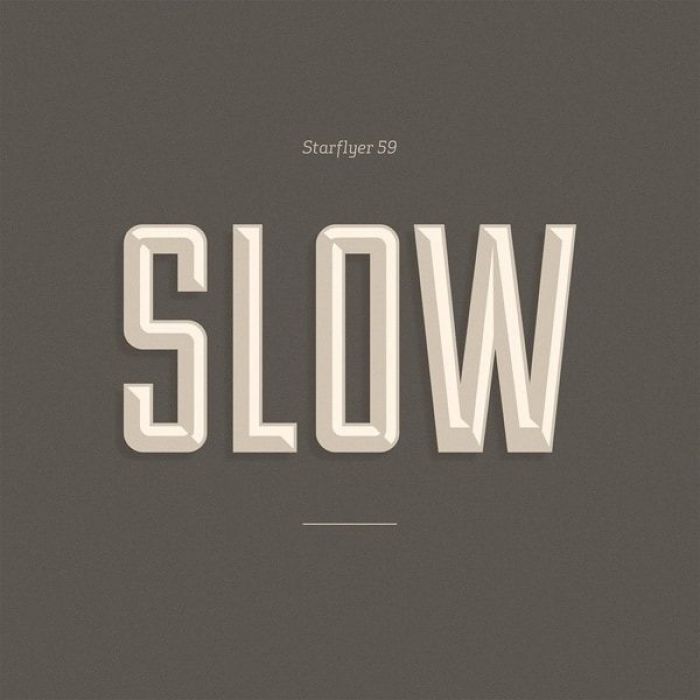Slow by Starflyer 59 (Review)

There’s never really been anything particularly groundbreaking or earth-shattering about Starflyer 59’s music throughout the band’s 23-year-long existence. That sounds dismissive and backhanded but I’d argue that’s actually the beautiful thing about Jason Martin’s songwriting. Rather than waste time trying to push envelopes or break boundaries, Martin simply focuses on writing good songs with solid hooks and catchy melodies — and for more than two decades, his unassuming “blue collar” approach has resulted in an impressively consistent and reliable discography.
If I sound a bit nostalgic waxing about the band’s legacy, then it’s probably because Slow — their fourteenth album — is itself obsessed with nostalgia. Musically, Slow plays like a review of the various styles that Martin has toyed with on previous albums, such as Americana and The Fashion Focus. For longtime fans, that alone makes the album worth checking out (though, in my experience, Starflyer 59 fans tend to be pretty obsessive anyway). What’s more, Slow features some of the best songs that Martin has written in awhile, including “Told Me So,” the Cure-ish “Wrongtime” (my personal favorite), and the noisy, driving “Runaround.”
But as enjoyable as Slow is musically, it really shines in its lyrics and themes. Martin’s always been a downbeat guy and so early albums were full of songs about broken hearts and lost friendships. But as Martin pointed out in a recent NPR interview, he’s now a “typical, middle-aged dude” in his forties who runs a business and raises three kids. Writing songs about being bummed out over girls just doesn’t make any sense now, and so Slow focuses on middle-aged reflections on growing up.
Maybe it’s because I’m in a similar life stage, but Slow resonates with me in a way that few other Starflyer 59 albums have. On the title track, Martin runs through a laundry list of life changes — houses bought and sold, vehicles owned, children born — before musing “What does it mean?/I keep looking for something that I think I have lost” while accompanied by some lovely Gold-era surf tones. Later, “Wrongtime” dreamily muses on mortality and missed opportunities. Slow finally winds down with the gloriously subdued “Numb,” which finds Martin wondering “Was it really better back then? Or were there really less problems? Or was it really that because then, you weren’t so numb?”
In the aforementioned NPR interview, Martin describes himself as a “minor-league ball player”; in his words, he’s “better than some, but not good enough to get it done.” While that may just be him being honest, the rest of us know that he has been getting it done, album after album, for more than two decades… and Slow is yet more ample evidence to that fact. Raising kids and running a business may leave little time for music — he’s not releasing albums on a yearly basis like he did in the ’90s — but when Martin does find some time to record an album these days, it’s quite clear that his ability to write solid, well-crafted songs has only improved with age.